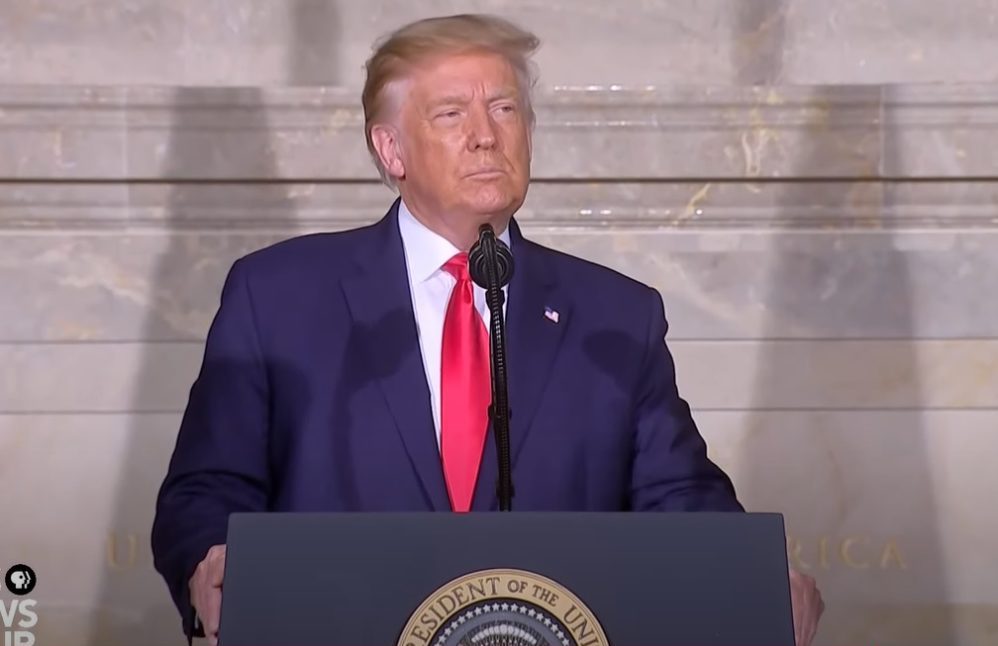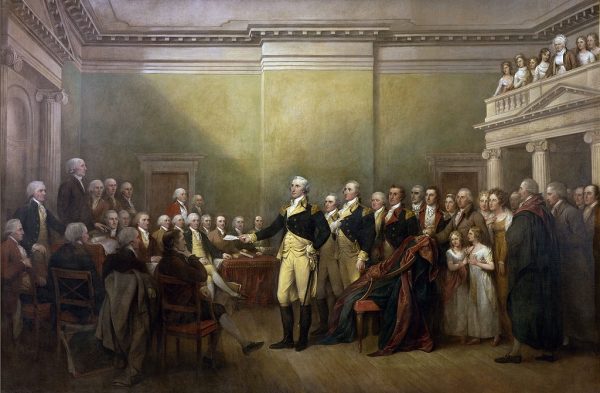Self-criticism, Progressivism, and post-modernism.
Fix High School History

The 1619 Project isn't the only curriculum turning students against America.
I am deeply honored to be here and participate at this White House Conference on U.S. history in the presence of our founding documents. Today is Constitution Day. It is also Citizenship Day, on which we honor all those who have attained American citizenship. Therefore, I will take a moment to acknowledge and thank two brave subjects of the East Bloc Communist regime of Romania—my parents—who left all that they knew to take their two young sons, myself and my brother at the age of 6, and legally emigrated to the United States.
We all eventually became grateful, naturalized United States citizens. Immigrants who come to America from such places do not take this remarkable country for granted. We know it has flaws—every country does. Yet we appreciate America and love it for its freedom, opportunity and rule of law, its never-ending efforts to address problems and injustices, and the traditions and fundamental human decency of its people that make it all possible.
The history we teach our children cannot solve all of our problems, nor should we expect it to. But it can provide a factual foundation for discussing current challenges and seeking solutions, while educating a new generation about America’s remarkable heritage and what brings us together. Unfortunately, all too often, that is not the type of history we are providing our students.
Others on this panel are discussing the deeply divisive misrepresentations of the 1619 Project, whose author has suggested that accuracy was not her priority. I will address the materials used in schools which have not formally adopted 1619, often assuming that more mainstream instructional materials are safe and not prone to such problems. I will also describe history instructional materials that my new nonprofit organization, American Achievement Testing (AAT), has begun developing to address these issues with an initial grant from the National Endowment for the Humanities.
In high school U.S. history, the most widely perceived “gold standard” is the College Board’s Advanced Placement (AP) U.S. History course. Though it is college-level, it often influences even non-AP U.S. history courses at the high school and even middle school levels. The AP U.S. History course framework presents a distorted picture of U.S. history that is in some ways more dangerous due to its subtlety than the 1619 initiative. The casual reviewer is unlikely to notice what is not present, or patterns that only become clear when one analyzes the document as a whole.
For example, the main AP U.S. History course framework refers to property 5 times, of which 4 are in the negative context of restricting the right to vote based on property requirements. The only reference to legal protections for property rights, a more positive context, refers to the Northwest Ordinance—a relatively obscure reference to most people. Nothing is included on Constitutional protections for fundamental property rights, such as the prohibition on government taking a person’s property without just compensation or protections for inventions or other intellectual property. Stepping back and considering our current social context, if property is presented mostly as an example of historical injustice, what does this indicate to students about the need to respect the private property of others?
In the case of religion, with few exceptions, the references are vague formulations about “divergent” views or “new” beliefs. The few references to Christianity or Christians in the Framework are mostly negative, including as a cause of the conquest of the New World and as participants in colonizing and exploiting native populations and Africans. But no mention is made of Christianity’s history as a driving motivation behind the abolition of slavery, charitable social activity, or the Civil Rights movement. No mention is made of the common use of Biblical quotations and beliefs in political pamphlets during the Revolutionary period. (For example, in Common Sense, Thomas Paine extensively quotes from Judges and Samuel in the Hebrew Scriptures.)
The Constitutional Convention is framed through the lens (“thematic focus”) of an event fostered by “social and political groups” (emphasis added). While that was certainly a critical element, it leaves out the impact of brilliant individual founders—great men who could sometimes rise above merely representing the interests of different factions.
The only substantive historical developments at the Constitutional Convention specified as required course content are compromises over the representation of slave states in Congress and the role of the federal government in regulating slavery and the slave trade. Similarly, the entire topic of the Constitution itself is covered in half a page. The required course content is captured by a single-sentence description of the historical developments represented by the Constitution. Quite a few other topics receive more extensive and specific coverage than the Constitution.
AAT, a nonprofit organization, is committed to developing instructional materials for American history at the high school level that are accurate and tell the whole story. That includes America’s faults but also its remarkable accomplishments. We have partnered with nationally-recognized historian Wilfred “Bill” McClay, who has authored an absolutely outstanding, readable and overall positive U.S. history textbook—Land of Hope—that we believe is the best available. We will work with Bill, along with other excellent historians and educators we’ve identified, to develop instructional units that provide teachers with detailed instructional support on assignments, assessments, handling diverse student skill levels, and everything else they might need.
The units will include a strong emphasis on students engaging with core original documents, including the Constitution and Declaration of Independence, to develop a basic mastery. Student will learn to analyze, discuss, and write short and longer historical analyses and papers. We believe that many parents, educators, and other interested citizens share our concern about the quality of much of history education and want something better. We appreciate that the National Endowment for the Humanities has provided us a limited grant that allows us to begin work, but the full effort will require citizens who agree that this is an enormous need to find out more about this initiative and consider supporting it.
The American Mind presents a range of perspectives. Views are writers’ own and do not necessarily represent those of The Claremont Institute.
The American Mind is a publication of the Claremont Institute, a non-profit 501(c)(3) organization, dedicated to restoring the principles of the American Founding to their rightful, preeminent authority in our national life. Interested in supporting our work? Gifts to the Claremont Institute are tax-deductible.
History sustains us when our ties to one another become frayed.
America's young people are miserable and angry. Universities are to blame.
Our heroes will never be forgotten.
Revisionism disrespects students and undermines our regime.
Who controls the past, controls the future.






